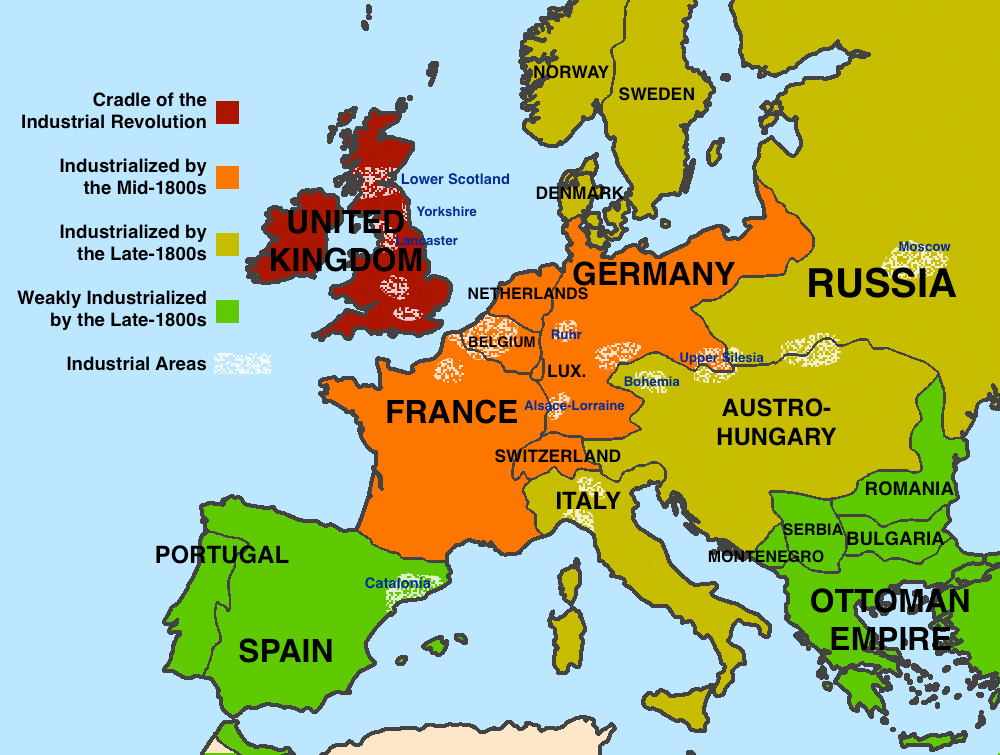The Industrial Revolution was a period from 1750 to 1850 where changes in agriculture, manufacturing, mining, transportation, and technology had a profound effect on the social, economic and cultural conditions of the times. It began in the United Kingdom, then subsequently spread throughout Western Europe, North America, Japan, and eventually the rest of the world.
Industrial Revolution
- Origin in England, because of its natural resources like coal, iron ore, and the invention and improvement of the steam engine
- Spread to Europe and the United States
- Role of cotton textile, iron, and steel industries
- Relationship to the British Enclosure Movement
- Rise of the factory system and demise of cottage industries
Rising economic powers that wanted to control raw materials & markets throughout the world
- Technological advances that produced the Industrial Revolution
- James Hargreaves - Spinning jenny
- James Watt—Steam engine
- Eli Whitney—Cotton gin
- Henry Bessemer—Process for making steel
Advancements in science and medicine
- Edward Jenner—Developed smallpox vaccination
- Louis Pasteur—Discovered bacteria
Impacts of the Industrial Revolution on industrialized countries
- Population increase
- Increased standards of living for many, though not all
- Improved transportation
- Urbanization
- Environmental pollution
- Increased education
- Dissatisfaction of working class with working conditions
- Growth of the middle class
The nature of work in the factory system
- Family-based cottage industries displaced by the factory system
- Harsh working conditions with men competing with women and children for wages
- Child labor that kept costs of production low and profits high
- Owners of mines and factories who exercised considerable control over the lives of their laborers
Impact of the Industrial Revolution on slavery
- The cotton gin increased demand for slave labor on American plantations.
- The United States and Britain outlawed the slave trade and then slavery.
Social effects of the Industrial Revolution
- Women and children entering the workplace as cheap labor
- Introduction of reforms to end child labor
- Expansion of education
- Women’s increased demands for suffrage
The rise of labor unions
- Encouraged worker-organized strikes to increase wages and improve working conditions
- Lobbied for laws to improve the lives of workers, including women and children
- Wanted worker rights and collective bargaining between labor and management
Capitalism
- Adam Smith’s Wealth of Nations
- Role of market competition and entrepreneurial abilities
- Impact on standard of living and the growth of the middle class
- Dissatisfaction with poor working conditions and the unequal distribution of wealth in society
Socialism and communism
- Karl Marx’s Communist Manifesto (written with Friedrich Engels) and Das Capital
- Response to the injustices of capitalism
- Importance of redistribution of wealth to the communists











